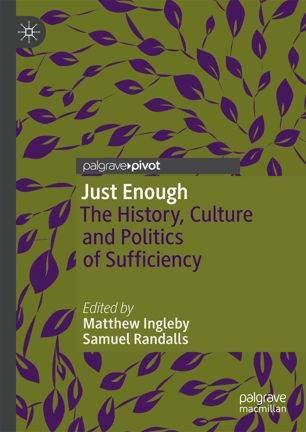

Most ebook files are in PDF format, so you can easily read them using various software such as Foxit Reader or directly on the Google Chrome browser.
Some ebook files are released by publishers in other formats such as .awz, .mobi, .epub, .fb2, etc. You may need to install specific software to read these formats on mobile/PC, such as Calibre.
Please read the tutorial at this link: https://ebookbell.com/faq
We offer FREE conversion to the popular formats you request; however, this may take some time. Therefore, right after payment, please email us, and we will try to provide the service as quickly as possible.
For some exceptional file formats or broken links (if any), please refrain from opening any disputes. Instead, email us first, and we will try to assist within a maximum of 6 hours.
EbookBell Team

4.0
6 reviewsThis book fosters a wide-ranging and nuanced discussion of the concept of ‘enough’. Acknowledging the prominence of notions of sufficiency in debates about sustainability, it argues for a more complex, culturally and historically informed understanding of how these might be manifested across a wide array of contexts. Rather than simply adding further case studies of sufficiency in order to prove the efficacy of what might be called ‘finite planet economics’, the book holds up to the light a crucial ‘keyword’ within the sustainability discourse, tracing its origins and anatomising its current repertoire of usages. Chapters focus on the sufficiency of food, drink and clothing to track the concept of 'enough' from the Middle Ages to the 21st century.
By expanding the historical and cultural scope of sufficiency, this book fills a significant gap in the current market for authors, students and the wider informed audience who want to more deeply understand the changing and developing use of this term.